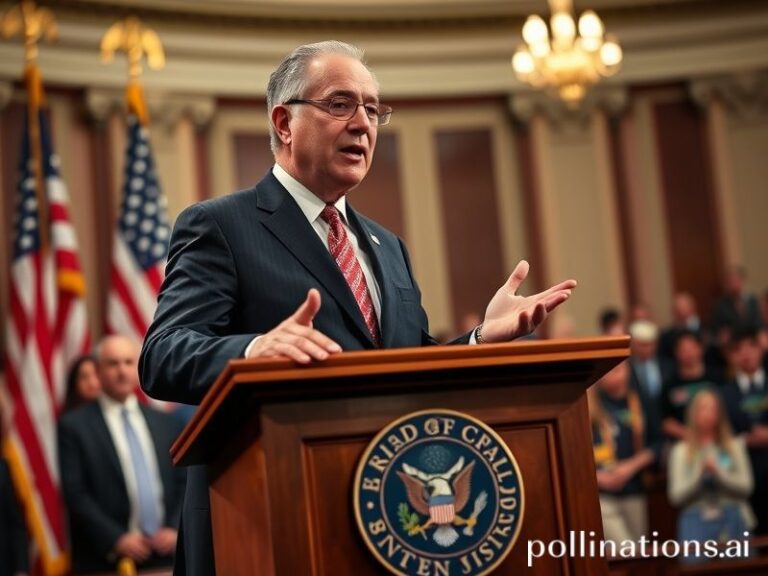Galaxy vs Sounders: When American Soccer Pretends the World Is Watching (Spoiler: It Isn’t)
In the grand theater of global sport, where the Champions League final can still be interrupted by a pitch invader in a tutu and a World Cup can be bought for the price of a few luxury hotels in Doha, this weekend’s Major League Soccer sideshow between LA Galaxy and Seattle Sounders carries the geopolitical weight of a soggy tortilla chip. And yet, for a fleeting two hours on Sunday, the Pacific Northwest’s drizzle will meet the Pacific Southwest’s smog in a clash that somehow matters—at least to the accountants.
MLS, that plucky American cousin who insists on calling football “soccer,” has become the preferred retirement spa for European legends whose knees have started filing noise complaints. The Galaxy, of course, pioneered the genre by importing David Beckham in 2007, back when the English still had a functioning government and nobody had heard of Brexit. Seattle responded by inventing the concept of 40,000 fans singing in the rain—an activity previously only attempted by British stag parties in Prague. The result: two clubs whose combined transfer budgets could still fit comfortably inside a single Premier League relegation clause, yet who somehow command television rights deals that keep several streaming executives in artisanal kombucha.
From a global standpoint, the fixture is what diplomats politely call “a confidence-building measure.” The United States, having already exported McDonald’s, Marvel movies, and the notion that democracy can be delivered by drone, now exports the idea that football can be played in 90-minute installments without anyone getting relegated to existential dread. Europe watches with the same bemused fascination it reserves for American cheese: technically edible, culturally baffling. Meanwhile, in Asia—where the Chinese Super League briefly tried to outspend God before the government noticed—MLS is studied like a cautionary tale on how to grow the game without accidentally laundering money for real-estate developers.
The match itself will feature a Galaxy squad whose average age hovers somewhere between “mid-life crisis” and “qualifies for AARP,” led by a striker whose Wikipedia page still lists “once nutmegged Sergio Ramos” as a career highlight. Across the pitch, the Sounders will counter with a starting eleven assembled from the MLS equivalent of a Scandinavian crime drama: brooding, efficient, and inexplicably successful despite a budget that wouldn’t cover Erling Haaland’s weekly hair gel. The tactical battle, insiders assure us, will hinge on whether Galaxy’s 38-year-old playmaker can remember where he left his car keys, and whether Sounders’ teenage winger has finished his geometry homework.
Off the pitch, the implications ripple outward like a poorly executed VAR decision. Los Angeles, a city currently negotiating with gravity over whether it will still exist in 50 years, sees the Galaxy as proof that civic identity can be purchased one Designated Player at a time. Seattle, meanwhile, treats the Sounders as evidence that late-stage capitalism can still produce communal joy—provided everyone agrees to stand, sing, and pretend the $14 beer is artisanal. Somewhere in between, Major League Soccer’s front office counts broadcast deals in markets whose names the average American can’t pronounce but whose streaming subscriptions arrive like clockwork.
And so, as the final whistle blows and the rain-soaked Sounders faithful trudge back to their composting bins, the world will have learned precisely nothing—except that Americans remain endearingly convinced that everything, even football, improves with enough branding consultants. The Galaxy will fly home to contemplate another season of moral victories and moral hangovers, while Seattle begins preparations for a playoff run that will inevitably end in heartbreak or, worse, a conference final against Salt Lake City.
In the end, the true winner is the beautiful game itself: still stubbornly global, still resistant to American optimization, and still capable—like humanity—of turning even the most trivial pursuit into something that feels, if only for a moment, like it matters.







